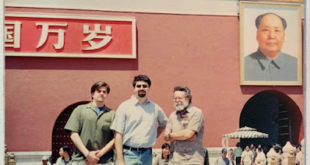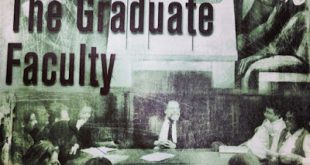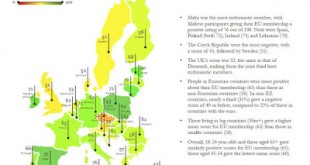With Lance in Beijing (2001)I took Lance’s macro class in the Fall of 1995 at the New School for Social Research (NSSR), and then was his Teaching Assistant for two years. The book we formally used was Income Distribution, Inflation and Growth: Lectures on Structuralist Macroeconomic Theory, in which the terms (not the concepts) for wage-led and profit-led economies were first used (at least that's what I think; profit-led does not appear in the index, I must note). But classes were based on...
Read More »The New School for Social Research at 100: A view from the Econ. Dept.
From a late 1990s catalogue; Lance Taylor (center), and also in no particular order and from what I can remember (Ellen Houston, Adalmir Marquetti, myself (with goaty on the left side), Margaret Duncan, Josh Bivens and Carlos Pinkusfeld (Orozco Room) The New School for Social Research was founded 100 years ago by a group of academics dissatisfied with the direction of American high education. Economics was central to the early history of the New School, and my brief, very incomplete,...
Read More »Brexit and Euroskepticism
British exit from the European Union (EU) is more radical than Grexit, which basically was exit from the eurozone (EZ), the currency area, but not the union. Wynne Godley, for example, was against the euro (see this), but he was not against the EU. Quite the opposite, he was pro-Europe, as were many progressive economists, several connected to Labor (Lord Eatwell being an example). The whole isue now became relevant, since David Cameron, the prime minister, set the date for a referendum on...
Read More »Lord Eatwell in the Financial Times
A short Letter to the Editor, but worth reading. He clearly explains the policy failure since the global crisis and the reasons for the current problems in financial markets in developed and developing countries. He says: The adage that, in the absence of the prospect of growing demand, cheap money amounts to “pushing on a string” has been once again confirmed in advanced economies by the slowest recovery from any modern recession. Instead of funding real investment, monetary expansion has...
Read More » Heterodox
Heterodox



